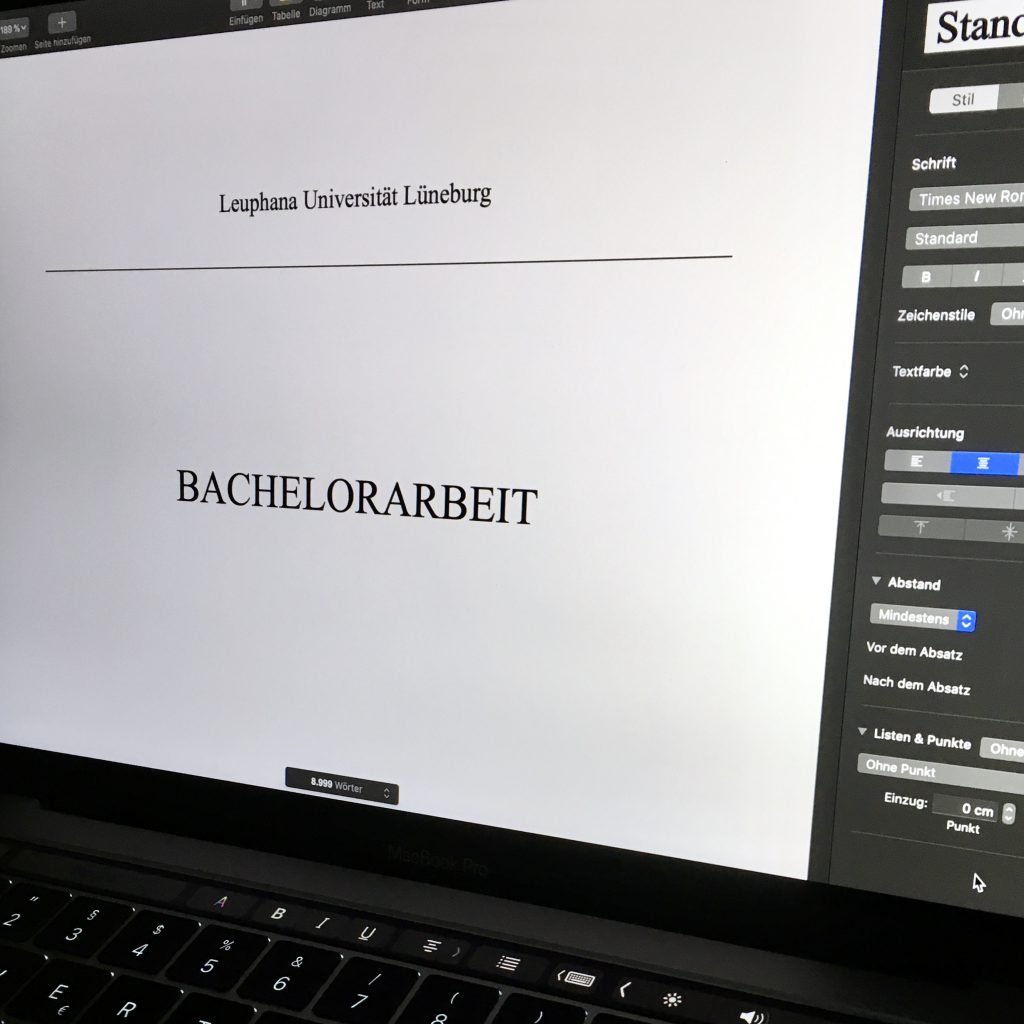In the research area of the llaudioll.de website Current Scientific Work is available for viewing and downloading. Newly arrived are bachelor and master theses with the following focal points: Postcolonial perspectives on music trends, streaming and curated playlists, the effects of the restructuring of music on the net and sound design in the e-automotive industry.

Who or what edits the playlists for streaming services like Spotify and what criteria play a role in this? In his master thesis, Matthias Lund (2019) examines the mechanisms, intentions and effects for the composition of playlists in Spotify. “Since the music offering within the streaming services cannot be overlooked by the individual, filtering mechanisms become necessary. The conditions of their design, however, remain almost hidden from the listeners: whether an algorithm or human curators are responsible for the selection of music, whether economic or cultural decisions are behind the selected (and thus excluded) music, is hardly recognizable in everyday use and takes a back seat to the graphic title lists of the playlists. … Consequently, a field is created around playlists between the necessity of curating in the sense of usability and the cryptic black box of the factors that shape this very offer.”
Link to the work: Die ganze Welt der Musik? Kuratierte Playlists als Zugang zu Musik bei Streamingdiensten (2019)
Lukas Iden (2018) examines whether the arrangement of genres in the genre map Every Noise At Once reproduces existing topophilia patterns within the stylistics of music, or on the contrary, breaks them up and is under the sign of a new, location-independent logic in the organization and structure of popular music. “In comparison to the music-ethnological order, it should become clear to what extent music in digital networks is structured differently and, above all, how these potential new and different orders affect the topophilia of agents of popular music and the associated postcolonial structures and cultural essentialisms in music. Do these restructurings even have the potential to decolonize music or is it the reproduction of a frozen Eurocentric view of music?”
Link to the work: (Un-)Mapping Music. Die Kartierung populärer Musik zwischen EthnoLogik und Algorithmik (2018)
Frieder Behrens (2019) deals with the hype surrounding the album ‘Obaa Sima’ by Ghanaian-born Yaw Atta-Owusu aka Ata Kak. His album was initially to go unnoticed after its release (1994) until the American Brian Shimkovitz digitized a copy of the cassette-released album and made it available to the online community on his blog ‘Awesome Tapes From Africa‘ in 2006. “From the author’s subjective perspective, Brian Shimkovitz’s project fits into a trend that is expressed in a growing interest in music from formerly colonized countries. Under names like ‘Analog Africa’, ‘Sahel Sounds’, ‘Mr. Bongo’ or ‘Habibi Funk’, to name but a few examples, Europeans or Americans are publishing early music by predominantly African artists. It is obvious that this raises postcolonial questions. It is in this sense that the relevance of this work is to be understood by critically discussing the phenomenon using Ata Kak and Awesome Tapes From Africa as examples.
Link to the work: Awesome Tapes From Afrika. Eine postkoloniale TRX-Analyse des Reissues von Ata Kaks "Obaa Sima" (2019)
Fully electric vehicles are no longer niche products. Many well-known manufacturers from the automotive industry are currently presenting the first models and series of electric cars as an alternative to vehicles with conventional combustion engines. However, electric motors have the property of being almost silent. This is a problem, as “in many situations, they can be overheard and thus represent a risk of accidents. An EU regulation, which came into force in July 2019, solves the problem of silence in electric cars with an Acoustic Vehicle Alerting System (AVAS). This system creates an artificial engine sound so that the vehicle is acoustically perceptible to other road users. The development and design of this exterior sound in accordance with EU regulations is a task and challenge for the industry. Alex Krause (2019) examines “what strategy manufacturers are using to implement the task of designing a synthetic sound for a car” and to what extent the sonic properties of the combustion engine still play a role in this process. It also predicts what the soundscape might sound like in a future city where mainly electric cars will be on the streets.
Link to the work:Funktionale Klänge im Straßenverkehr – die synthetische Klangerzeugung beim Elektroauto (2019)
